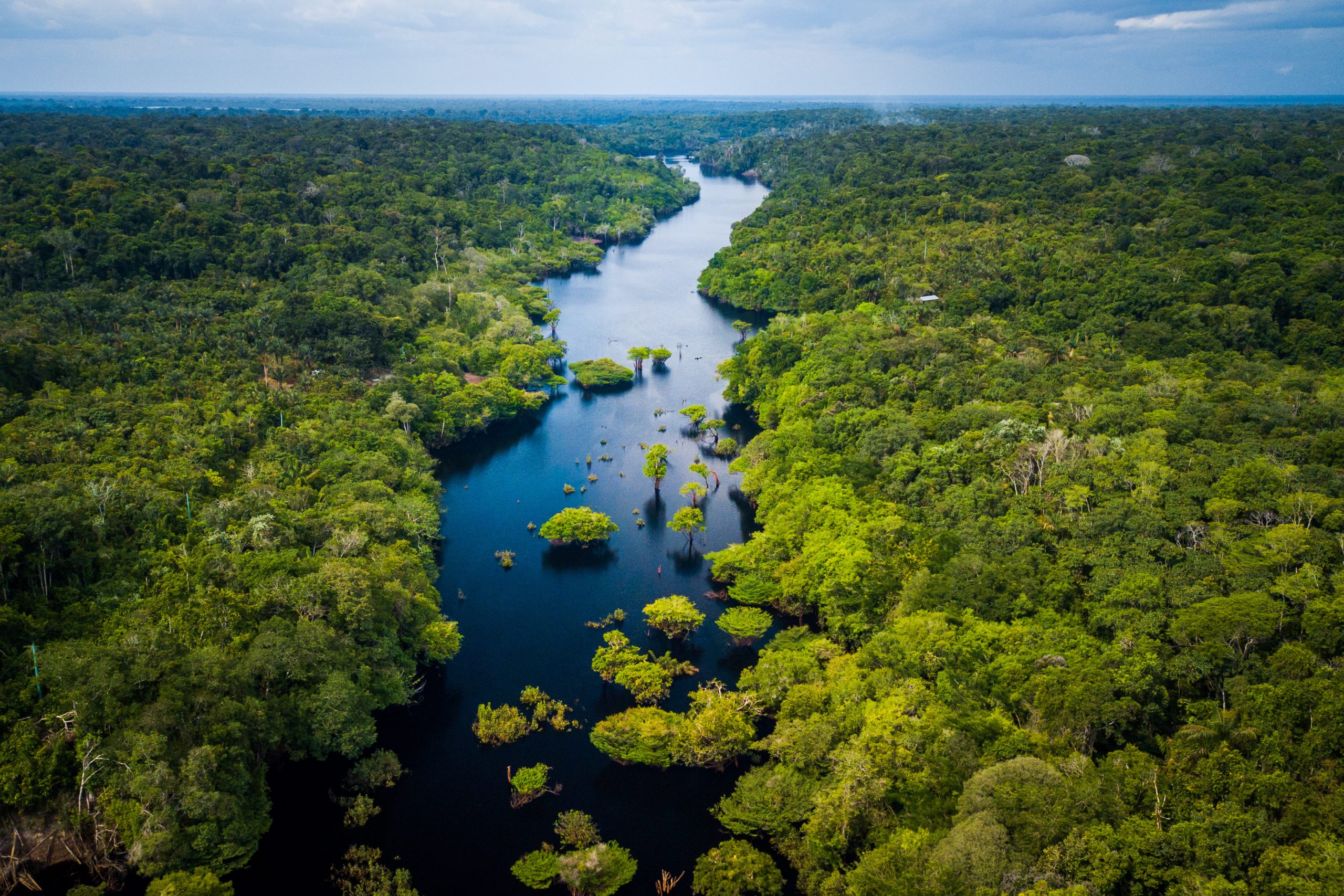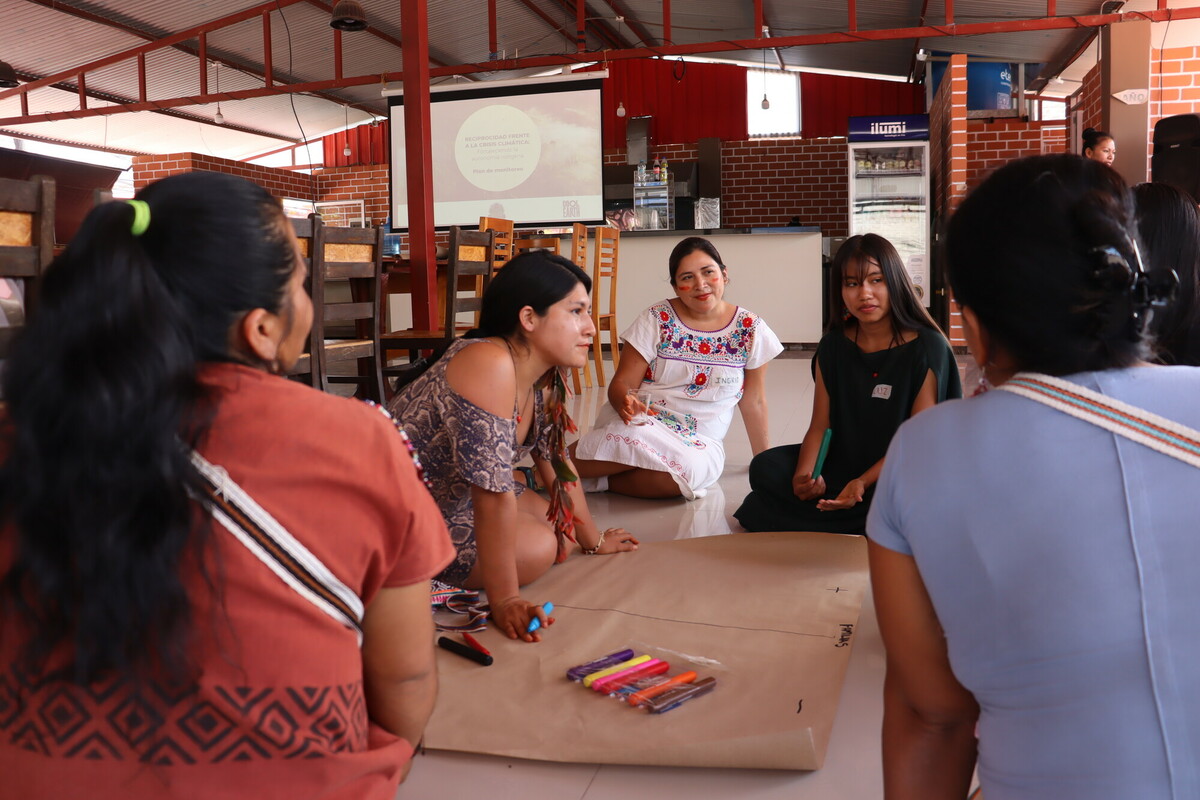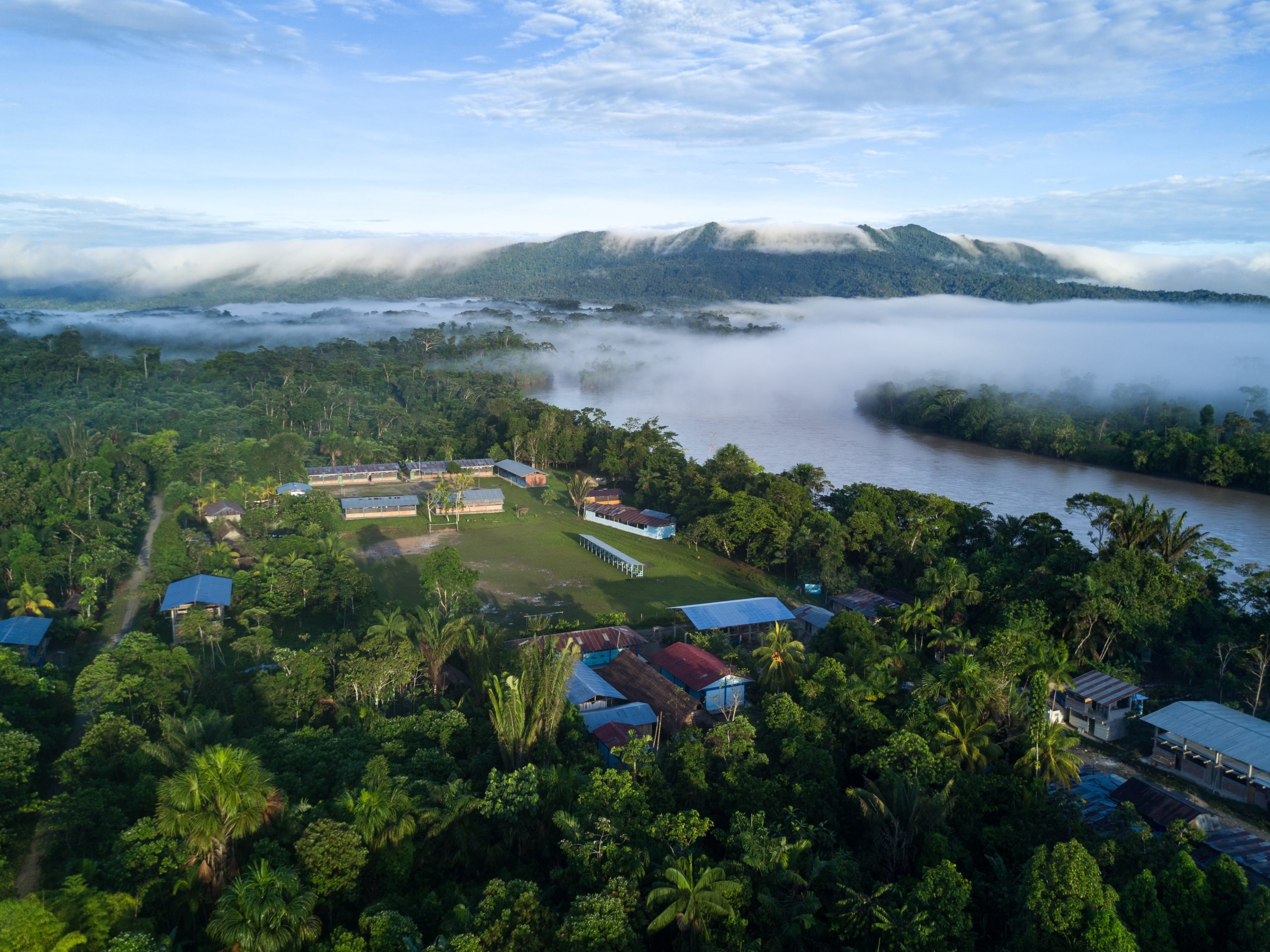In a pioneering move, Cool Earth, with support from AidKit, and funded by Liberty Specialty Markets and People’s Postcode Lottery, launched the world’s first basic income pilot for people living in the Amazon.
This groundbreaking initiative was co-created by the National Organization of Indigenous Women of the Andes and the Amazon of Peru (ONAMIAP), and the Organization of Indigenous Women of Asháninka People of the Central Jungle (OMIAASEC).
The goal is to provide income to people in three rainforest communities for two years, empowering them to sustain their livelihoods, and keep their ancestral territories. In doing so they are helping to protect the rainforest and by keeping rainforests intact, they are helping to tackle the climate crisis.
The Amazon rainforest is not only a rich reservoir of biodiversity, but also home to communities whose way of life and survival are intertwined with the forest’s health. Despite their crucial role in safeguarding these ecosystems, people who live in rainforests often face the impacts of climate change, along with threats from loggers, miners and large scale farming looking to exploit their lands. This pilot arose from a vital need to support these communities in a manner that respects their culture, and needs.


Amazon Rainforest in Anavilhanas National Park, Amazonas – Brazil
The challenge
Cool Earth wanted to find solutions that met the urgent needs of those living in the Amazon, and what support they needed to remain living in the rainforest. The rainforest communities they approached told them overwhelmingly they needed access to income, food, safe drinking water, healthcare, and education. Plus, the opportunities to invest their money into small-scale farming projects so they can sell produce, and generate a sustainable income.
Kely Quicha is a member of an organization of Indigenous Women of the Andean and Amazonian Region of the Central Jungle (OMIAASEC). Her community is one of thousands that are threatened by the loss of their Indigenous territories in the Amazon rainforest.
Kely says that, “To strengthen the autonomy of communities, it is important to work with them and with the grassroots organizations that support them. By strengthening our towns we will be able to confront the invaders who come to want to take away our spaces.”
From a technological standpoint, an interesting challenge AidKit came across was figuring out how to know for sure when a device is “fully synced” – meaning, it has uploaded everything that was originally recorded offline.
To do this, AidKit had each device provide that information actively, up until the moment they go offline. Then, once back online, the devices broadcast this information again, allowing them to reconcile what has changed – and hence, what is about to be uploaded.
Kely goes on to say that “In many communities there is no internet access, but with the platform, we can register the information and upload it later. This is important for data processing. In addition, it allows us to complement the information with photographs and notes, all in one place, to make known the reality of our communities.”


The ONAMIAP, OMIASEC and Cool Earth teams preparing the basic income sign up process for the Asháninka and Yanesha communities in Peru.
Solution
Kely helped implement the program: “We are very grateful to the pilot for the opportunity it has given us .”
The partnership between AidKit and Cool Earth meant that the participants could manage their own data, and securely process their own financial transactions. Tablets and bespoke software built in partnership with the community enabled quick and efficient cash transfers to everyone who needed them, and was simple enough that the community could manage it themselves.
“This is the first pilot in which we have been able to intervene with technology and this is important.” says Kely. “People who live in the rainforest usually cannot access these materials due to costs and acquisition capacity, but collaborative work has allowed us to support, learn and teach.”
Outcomes and Impact
Since its launch, this initiative has directly empowered every adult member of the participating communities, granting them financial freedom to support their families, send their children to school, and care for the elderly – without compromising their environmental stewardship. This model of social justice has proven to be a triple win: for biodiversity, climate, and the human rights of Indigenous peoples.
“The exchange of learning and information has been important, as well as the participation of young and old. We want to continue promoting and providing greater access to technology and resources. We all have the right to learn and in practice it makes a big difference.”
This collaboration has illuminated the potential of combining technology with empathetic, community-first approaches to aid distribution. The biggest takeaway is the clear demonstration of how empowering individuals directly can pave the way for sustainable environmental stewardship, and social justice.
Buoyed by the success of this pilot, AidKit and Cool Earth are exploring opportunities to expand this project to more communities across the Amazon. They remain committed to the long-term goal of leveraging direct financial assistance as a tool for environmental conservation, and social empowerment.
A community backed by income means they are resilient, and don’t have to accept the offers made by loggers, miners or anyone who wants them to leave their ancestral lands. The community has the power to resist.
“I am proud of my roots, and the knowledge of my people,” says Quicha.
Cool Earth and AidKit want income to be possible for more people who live in the rainforest. They all have the right to urgent needs, and it makes a big difference to livelihoods and the future of the rainforest.


An aerial view of the Awajún community of Urakuza in the morning mist.
Partnership Story
Cool Earth’s partnership with AidKit was born from a shared commitment to innovative, and compassionate solutions to humanitarian issues. Recognizing AidKit’s expertise in facilitating secure, and efficient direct cash transfers – especially in challenging contexts devoid of traditional banking infrastructure, or internet connectivity – their collaboration was pivotal for the project’s success.
AidKit introduced new technical functionalities to ensure secure offline payment solutions. This innovation was instrumental in reaching remote communities, collecting sensitive information through mobile devices in offline modes, and processing transactions securely – thus enabling unconditional cash transfers directly to individuals in need.
AidKit first made their website a “Progressive Web App”, which ensures it can load offline. Then, they utilized the fairly new browser feature “Origin Private File System” (OPFS) to manage storing applicant data securely.
Additionally, for sensitive information, they used an additional encryption layer which could not be reversed on the device. This is a form of Asymmetric Encryption known as Public-Key Cryptography. It’s the same tech used to help make HTTPS secure.
AidKit orchestrated the operations around payments to the people living in the rainforests. They enrolled eligible members of the community, including collecting bank information. They also provided a way to indicate when payments were received. This happened outside of AidKit’s system, so was handled by the Cool Earth team based on their communications with the Indigenous communities.
We extend our sincerest gratitude to all partners, supporters, and participants for their unwavering dedication and belief in the power of solidarity, and innovation, to create a fairer, and more sustainable world.
Learn more about AidKit here.
